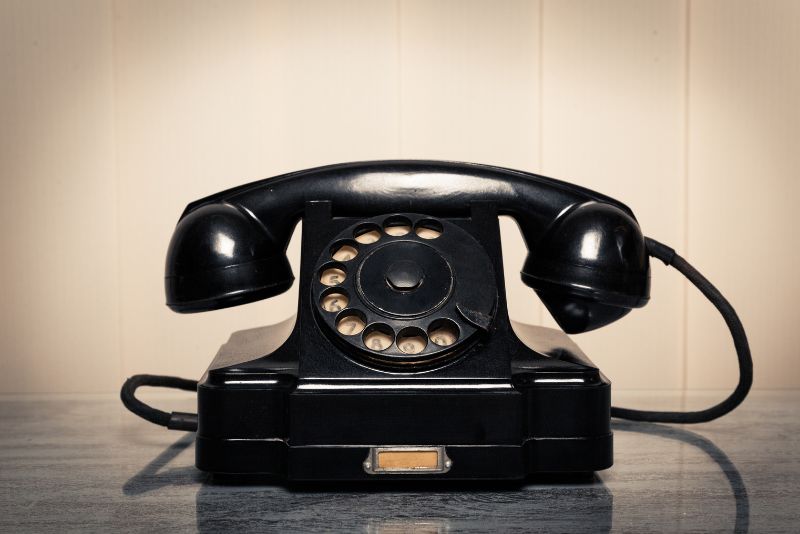What to Do When Someone Passes
Step 1: Where the Death Occurred and What to Do
At Home
If the death occurs at home and is expected, contact the deceased's GP. A GP or community nurse will verify the death, after which you can contact us to bring the deceased into our care. If no coroner is involved, the GP will issue a medical certificate of the cause of death, which will be sent directly to the Registrar. The Registrar will then contact the family to schedule an appointment to register the death.
For unexpected deaths at home, dial 999 for an ambulance. Emergency services will guide you through the next steps, and the police will report the death to the coroner. Once verified, the coroner will appoint funeral directors to take the deceased to the hospital mortuary.
At a Hospice or Nursing Home
If the death occurs at a hospice or nursing home and there is no coroner involvement, a GP or qualified staff member will verify the death and arrange for us to take the deceased into our care. The GP will issue a medical certificate of the cause of death, which will be emailed directly to the Registrar. The Registrar will contact the family to arrange the registration of the death.
In Hospital
When a death occurs in a hospital without coroner involvement, the bereavement office will guide you through the process of obtaining the medical certificate of the cause of death, which will be sent directly to the Registrar. The Registrar will then contact the family to arrange an appointment for registering the death. Each hospital requires specific paperwork before we can bring the deceased into our care, and we will assist you through this process.
Elsewhere
If the death occurs outside the home area, local GPs, hospitals, or the coroner will handle the necessary paperwork. Registration must take place in the district where the death occurred. If the deceased is to be returned home for the funeral, we will arrange transportation and all necessary arrangements, including those for deaths occurring abroad.
Abroad
If the death occurs abroad, local hospitals or GPs may not issue a medical certificate of the cause of death. In such cases, the death must be reported to the coroner, usually by a GP or police officer.
Step 2: Involvement of the Coroner
The coroner may require further investigation to determine the cause of death
Such as a post-mortem or CT scan. Coroner involvement may be necessary in cases where:
-
The cause of death is unknown.
-
The deceased was not attended by a doctor during their final illness
-
The death was sudden and unexplained
-
The doctor had not seen the deceased within 14 days before death or after death
-
The death occurred during an operation or under anaesthesia
-
The death was caused by an industrial injury or disease
-
The death was violent, unnatural, or under suspicious circumstances
-
The death occurred due to violence, neglect, abortion, or poisoning
If a post-mortem or CT scan indicates natural causes, the coroner will send the necessary paperwork to the register office. If an inquest is required, registration of the death cannot proceed until after the inquest concludes. An interim death certificate will be issued for immediate needs, such as banking arrangements, and the funeral director will receive the necessary forms for funeral arrangements.
-
Medical certificate of the cause of death (sent directly if reported to the coroner)
-
Additional documents like driving license, medical card, birth certificate, passport, and marriage/civil partnership certificate (if applicable)
-
Date and place of death
-
Deceased's last address
-
Deceased's full name and surname (maiden name if applicable)
-
Deceased's date and place of birth (birth certificate helpful but not essential)
-
Deceased's occupation
-
Full name, date of birth, and occupation of spouse/civil partner (if applicable)
-
Whether deceased was receiving a pension or benefits
-
Certificate of burial or cremation (Green Form), available in print or emailed directly to the funeral director
-
Certificate of Registration of Death (Form BD8), to be sent to relevant authorities if deceased received state pension or benefits
-
Death Certificate (or Death Entry), copies available for will, insurance policies, bank, and private pension schemes (charges apply)
-
Registration by Declaration for non-local registrants, with additional processing time between local and district registrars
Considerations To Contact
Useful Contacts for Hospitals and Registrars in Wythenshawe
-
Wythenshawe Hospital
- Phone: 0161 998 7070
- Address: Southmoor Road, Wythenshawe, Manchester, M23 9LT
-
Manchester Registrar Office
- Phone: 0161 234 5005
- Address: Heron House, 47 Lloyd Street, Manchester, M2 5LE
Additional Contacts

Manchester City Council Bereavement Services
Contact Us





